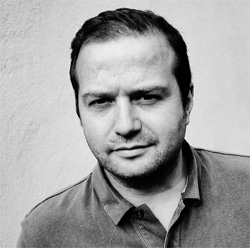Look Before You Tweet: Manchester United Become a Fully Social Club – David Granger
July 12, 2013
The news that Britain’s biggest sporting team has finally joined Twitter was greeted with either: ‘what took them so long?’ or ‘aren’t they already?.’
Because that big old social media bandwagon has been rolling along for more than five years now and it did seem anomalous. Clearly the good people at Old Trafford have – quite rightly – decided that the time is now right, to join the world’s two biggest microblogging sites, whether that’s due to the new David on the field (Moyes) or the new David in the marketing department (Sternberg).
The clever bit in joining fashionably late is that experts and amateur commentators of a sporting or digital bent are talking about it. A lot. It means that with some panache, Manchester United have utilized the social media to do their channel promotion for them. Google @manutd and you get five pages of news stories. Now that’s shrewd digital marketing.
And doing it both on Twitter and Sina Weibo means that commercially the Asian market as well as the European and American market (where Twitter has the highest useage) have been considered. Clearly this exercise will help as much in sponsor engagement as fan interaction.
Timing in social media is important for several reasons. Launch a channel with no clear content strategy or tone of voice (or getting the intern to run it) and becomes less than useful. The current Formula One world champions were early on Twitter, late on Facebook. Not because its importance wasn’t realized, but because a content strategy was necessary before it went live. And from being one of the latecomers on the Facebook scene, they became, in line with newfound ontrack success, the most followed F1 team.

The content of @manutd so far is toe-in-the-water stuff; your now traditional behind-the-scenes shots plus a list of fixtures which have changed. And the fact that Wayne Rooney is one of only 22 feeds being followed shows that it’s more dissemination than conversation. While, at the time of writing, they’re less than 36 hours old, they haven’t yet entered into the dialogue for which Twitter is most useful.
But Twitter has become a vital tool in any sporting organization or athlete’s arsenal. Its direct nature, its ability to host dialogue and its speed mean that for Manchester United fans and those assessing the club’s commercial dealings, there’s a direct channel of communication right to the heart of the club.
Up until Wednesday, United were part of a select group of non-tweeters. The airline Emirates, computer and phone giants Apple and F1 world champion Sebastian Vettel are three relatively big brands not yet officially on Twitter. Vettel himself is not keen on social media. He told Auto Motor und Sport that social media: “…is not true communication. Facebook and Twitter are not my thing…. It is a very indirect and impersonal way to make contact with other people. I prefer personal conversations, face to face.” Or it could be that he prefers to concentrate on racing and winning world championships and anything else is just a distraction.
Manchester has already seen one of its football teams score in the digital arena. City were trailblazers not only in football, but perhaps in British sport and the red side want a slice of the action. It will be fascinating to monitor what content and social strategy they now execute. After all, they’ve had some time to prepare it.
Having spent eight seasons in Formula One managing the digital channels for world champions Red Bull Racing, David Granger now runs Fact 51 (www.fact51.com) a social and digital content agency.
{jcomments on}


